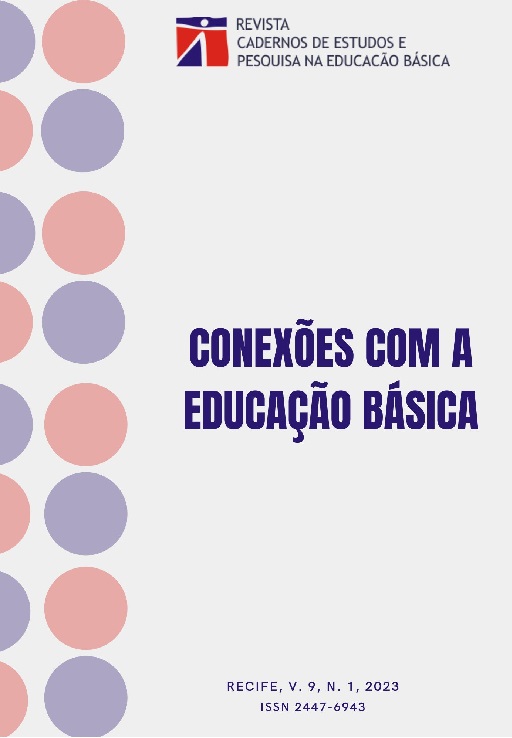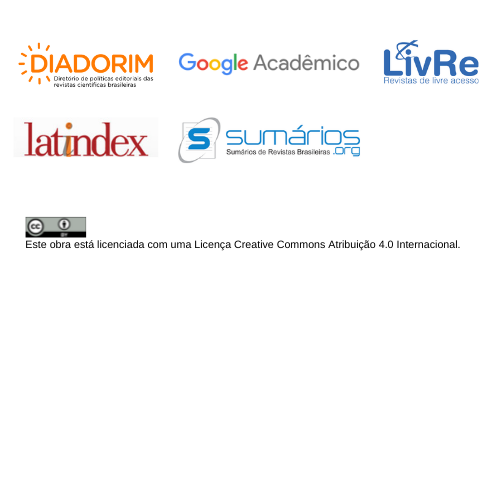Digital technologies and English language learning: the production videos to promote meaningful learning of English
Keywords:
production of videos, meaningful learning, english language learningAbstract
This research aims to present an experience report on the production of videos as a pedagogical tool to develop meaningful learning in the English language. Its methodological basis involved a qualitative
study, through a participant research. In this research, a group of students from a federal public school has been part of a didactic sequence based on the Meaningful Learning Theory, the theoretical basis of this study. The results of the investigation have shown that the production of videos contributes to the English language meaningful learning, enlarging both the repertoire and the
linguistic and communicative competence of the participants. Limitations of the study included an insufficiency of research in the English teaching and learning field and therefore further studies on this
methodological deficiency should be conducted to confirm this hypothesis
References
AUSUBEL, D. P. The acquisition and retention of knowledge: A cognitive view. Dordrecht: Kluwer Academic Publishers, 2000.
AQUINO, K. A. S.; CAVALCANTE, P. S. Análise da Construção de Conhecimento Significativo Utilizando a Produção de Curtas Metragens no ensino de Química Orgânica. Revista Eletrônica de Enseñanza de las Ciências, [s. l.], v.16, n.1, p. 117-131, 2017.
BACICH, L.; MORAN, J. Metodologias Ativas para uma Educação Inovadora: uma abordagem teórico-prática. Porto Alegre: Penso, 2018.
BERGALA, A. A hipótese-cinema. Rio de Janeiro: Booklink; CINEAD-LISE-FE/UFRJ, 2008.
BRAGA, D. B. Ambientes Digitais: reflexões teóricas e práticas. São Paulo: Cortez, 2013.
BRASIL. Lei nº 9.394, de 20 de dezembro de 1996. Estabelece as diretrizes e bases da educação nacional. Diário Oficial da União, Brasília, DF, dez. 1996. Disponível em: http://www.planalto.gov.br/ccivil_03/leis/l9394.htm. Acesso em: maio 2019.
BRASIL. Ministério da Educação. Base Nacional Comum Curricular: Ensino Médio.
Brasília: MEC/SEMTEC, 2017.
CAZDEN, C. et al. A pedagogy of multiliteracies: Designing social futures. Harvard Educational Review; v. 66, p. 60-92, 1996.
COPE, B.; KALANTZIS, M. “Multiliteracies”: New Literacies, New Learning. Pedagogies: An International Journal, [s.l.], v. 4, p. 164-195, 2009.
DEWEY, J. Democracy and Education. New York: The Macmillan Company, 1916.
DONAGHY, K.; XERRI, D. (eds.). The Image in English Language Teaching. Floriana (Malta): ELT Council; Ministry for Education and Employment, 2017.
DUDENEY, G.; HOCKLY, N. How to Teach English with Technology. England: Pearson/Longman, 2007.
FREIRE, P. Pedagogia do Oprimido. 17. ed. Rio de Janeiro. Paz e Terra, 1987.
Downloads
Published
Issue
Section
License
Copyright (c) 2023 Cadernos de Estudos e Pesquisa na Educação Básica

This work is licensed under a Creative Commons Attribution 4.0 International License.
CARTA DE AUTORIZAÇÃO PARA PUBLICAÇÃO ON LINE
CONCESSÃO DE DIREITOS AUTORAIS
O(s) autor(es) do trabalho acadêmico enviado à Revista CADERNOS DE ESTUDOS E PESQUISA NA EDUCAÇÃO BÁSICA CAp-UFPE, por ser(em) titular(es) da propriedade literária do mesmo, assume(m) integral responsabilidade diante de terceiros, quer de natureza moral ou patrimonial, em razão de seu conteúdo, declarando desde já, que a obra a ser entregue é original, e que não infringe quaisquer direitos de propriedade intelectual de terceiros e, caso infrinja, as devidas responsabilidades legais relacionadas a Direitos Autorais do material recaem sobre o(s) autor(es) do texto em questão. Desta forma, autoriza(m) a edição de seu trabalho e concede(m) à Revista CADERNOS DE ESTUDOS E PESQUISA NA EDUCAÇÃO BÁSICA CAp-UFPE permissão para reproduzir, comercializar, editar e publicar o citado artigo impresso em papel ou on line, na referida Revista em número e volume ainda a serem definidos pela sua Comissão Editorial. Tal concessão não terá caráter oneroso para a UFPE ou para a Comissão Editorial da Revista CADERNOS DE ESTUDOS E PESQUISA NA EDUCAÇÃO BÁSICA, ou seja, não haverá remuneração sob qualquer modalidade pela utilização do referido material, tendo o mesmo o caráter de colaboração. O(s) autor(es) compromete(m)-se a assegurar o uso e gozo da obra à Revista CADERNOS DE ESTUDOS E PESQUISAS NA EDUCAÇÃO BÁSICA, que poderá explorá-la com exclusividade nas edições que fizer e compromete(m)-se também a não autorizar(em) terceiros a transcreverem ou traduzirem parte ou totalidade da obra sem expressa autorização da Comissão Editorial desta Revista, cabendo ao infrator as penas da legislação em vigor. O(s) autor(es) asseguram ainda que revisou(aram) a forma final do trabalho e o aprovou(aram) para publicação. À Revista CADERNOS DE ESTUDOS E PESQUISA NA EDUCAÇÃO BÁSICA – Comissão Editorial, reserva-se o direito de modificar o texto, em consulta ao/a/aos/as autor/es/a/as, incluindo reformulações na linguagem, quando necessário, sem prejudicar seu conteúdo, com o objetivo de uniformizar a apresentação.
Os conteúdos da Revista Cadernos de Estudos e Pesquisa na Educação Básica estão licenciados com uma Licença Creative Commons Atribuição 4.0 Internacional.


